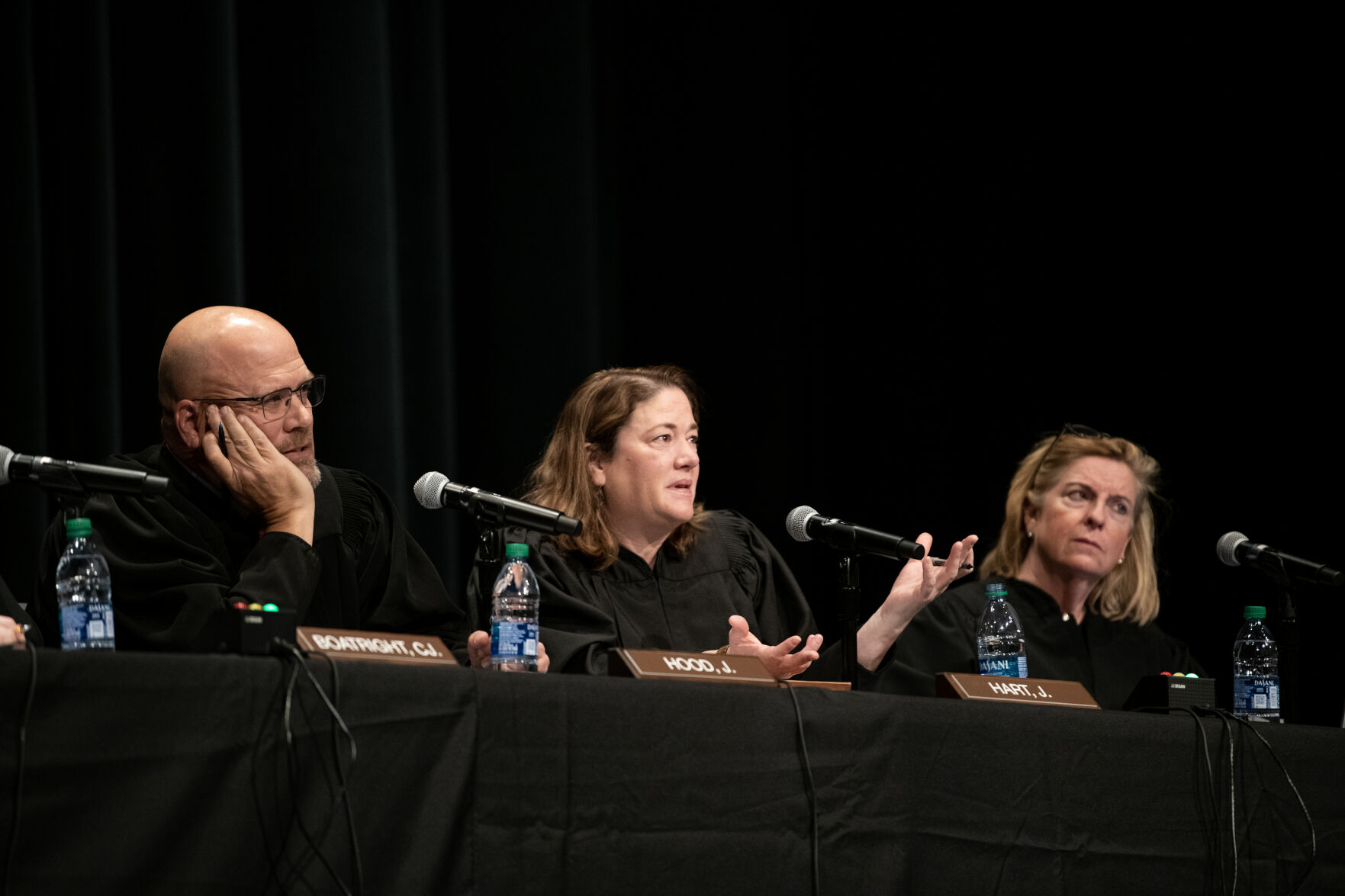Colorado Supreme Court weighs propriety of financial penalties for job-switching lawyers

When attorney Grant Bursek left his job for a different law firm, his old employer billed him $18,936 – meaning $1,052 for each of the 18 clients he took with him, pursuant to an agreement he signed months earlier.
Now, in a first-of-its kind case, the Colorado Supreme Court is pondering whether law firms may charge departing lawyers a fee for each client they retain and, if the answer is yes, at what point a reimbursement agreement becomes unreasonable.
On Tuesday, the justices heard oral arguments in the dispute between Bursek and his one-time employer, Modern Family Law. The law firm argued its flat rate, at $1,052 per client, represented the average marketing cost in the Denver area to drum up clients for its attorneys. Therefore, it was reasonable to charge lawyers who took a client with them after Modern Family Law spent money to attract that client in the first place.
The Supreme Court was not so sure.
“I have not found an example of a per-client fee being upheld by any jurisdiction,” said Justice Melissa Hart.
“I worked in a law firm. It was frustrating when you invested a lot of money in someone and they left. Even more frustrating when you gave a partner a big bonus and they left,” added Justice Richard L. Gabriel. “But that’s just kinda the cost of doing business.”
Beyond Bursek’s potential obligation to repay his employer nearly $19,000 and the way in which Modern Family Law calculated its costs, the controversy raises the broader concern of people being able to hire an attorney of their choosing.
Under the Colorado Rules of Professional Conduct for attorneys, law firms generally may not enter into an agreement that “restricts the right of a lawyer to practice” upon departing a firm. The purpose of the rule is to preserve an attorney’s professional autonomy and to avoid interference with attorney-client relationships.
In March 2019, Bursek became an associate attorney at Modern Family Law. Although it was unclear whether he needed to sign the document as a condition of his employment, he ultimately entered into an agreement to reimburse the firm for marketing expenses if he left and took clients with him. Instead of client-specific costs, the agreement committed Bursek to paying $1,052 per client based on the historical average of marketing to Denver-area clients.
When Bursek left Modern Family Law six months later with 18 clients, the firm billed him. Bursek did not pay, prompting Modern Family Law to sue him.
In 2020, then-Denver District Court Judge Morris B. Hoffman acknowledged a reimbursement agreement would not prohibit Bursek from continuing to represent his clients, but it would impose a financial cost and discourage an attorney in Bursek’s shoes from retaining clients who wanted to keep him as their lawyer.
“The theoretical ‘right’ to represent a client would be a practical nullity if, for example, Defendant had to pay $1 million for each client he took with him,” Hoffman observed.
The Court of Appeals, in reviewing the agreement, noted other states’ courts had interpreted similar rules to Colorado’s, but no exact case like Bursek’s. A three-judge appellate panel believed some degree of penalty is acceptable to ensure the financial health of law firms, but the fee cannot be so exorbitant as to force lawyers to end relationships with their clients.
Judge Terry Fox wrote in the panel’s opinion that Modern Family Law’s fees were unreasonable because, at nearly $19,000, they restricted Bursek’s ability to practice law.
“MFL did not explain why the $1,052 per client fee represents a fair estimation of marketing costs for each client,” she added.
Now, in front of the Supreme Court, Modern Family Law argued its fee was reasonable because it related purely to the costs of bringing clients to the firm – clients whose money would now go to Bursek in his new job.
“If you have law firms that, every three years or two years they have their associates leaving, and you’re doing certain things in marketing for your associates and they’re leaving, how stable are those firms going to be?” argued Nancy L. Cohen for Modern Family Law. “If law firms aren’t gonna spend the time, money and effort for lawyers who are coming in as associates, you may not have law firms.”
However, Gabriel countered that the $1,052 flat rate felt like charging a departing employee for the overhead cost of running the law firm, not a client-specific marketing cost like “if the firm paid for Broncos tickets and whatever to schmooze a potential client.”
“That causes the departing attorney to think really carefully about which and how many clients they might be taking with them, which I imagine is probably part of the purpose,” said Justice Monica M. Márquez. “That’s the part that troubles me a little bit.”
Bursek’s attorney believed reimbursements can be reasonable in some circumstances, but they must relate to actual client costs. Modern Family Law’s agreement, in contrast, allegedly treated clients like “branded cattle.”
Under the agreement, “if Mr. Bursek became a judge or decided to become a prosecutor or defense or different area of the law, he would pay nothing,” said attorney Troy R. Rackham. “If this is a cost the law firm legitimately incurred, why is it those who choose to compete with the law firm have to pay the cost?”
Several of the justices appeared uncomfortable with the agreement’s impact on lawyers’ willingness to represent clients. Justice Maria E. Berkenkotter observed the incentive is for departing lawyers to only keep newer clients, whose cases will generate bills far into the future, instead of longtime clients whose cases are almost over and not worth the $1,052 penalty.
New clients, she said, are “probably a better risk because you’re going to earn more money over time.”
The case is Johnson Family Law v. Bursek.












